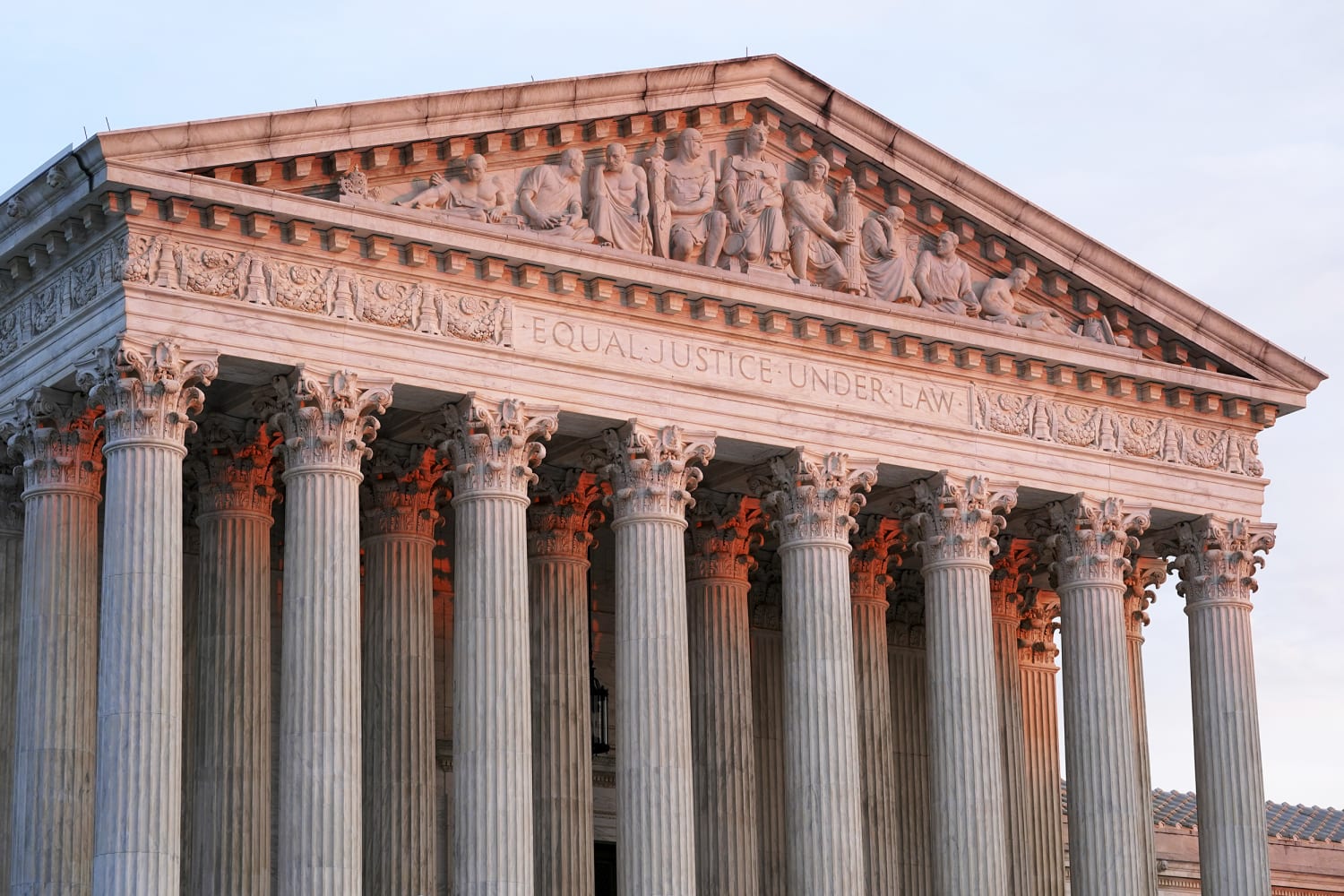[ad_1]

WASHINGTON — The Supreme Court appears unlikely to conclude that Twitter can be sued for aiding and abetting the spread of militant Islamist ideology in a case argued Wednesday concerning a Jordanian citizen killed in a terrorist attack.
Relatives of Nawras Alassaf, who was killed in Istanbul in 2017, filed a lawsuit claiming that Twitter, Google and Facebook were liable for aiding and abetting the attack under a federal law called the Anti-Terrorism Act.
Wednesday’s argument was the second part of a Big Tech double-header at the Supreme Court, where the justices wrestled Tuesday with a related case about whether Google-owned YouTube can be sued for similar conduct in connection with the killing of Nohemi Gonzalez, a U.S. college student, in the 2015 Paris attacks carried out by the Islamic State terrorist group.
Unlike Tuesday’s case, the Twitter case does not concern Section 230 of the Communications Decency Act, the legal shield that protects internet companies from liability for content posted by users.
It instead focused on whether such a claim can be brought under the anti-terrorism law. Lower courts have not weighed in on whether Section 230 protects Twitter and the other companies in the case. Only Twitter formally appealed the appellate court ruling; Facebook and Google filed a brief in support.
Justices spent most of the almost three-hour oral argument probing exactly what constitutes aiding and abetting under the anti-terrorism law and appeared to be struggling to determine where exactly the line should be drawn.
Justice Brett Kavanaugh appeared concerned that all manner of entities could be sued for aiding and abetting if the plaintiffs win. He wondered for example if CNN could have been sued for airing a famous interview with Osama bin Laden in which the al Qaeda leader declared war on the United States.
A ruling against Twitter “would place a heavy burden on a wide variety of businesses,” he said.
Similarly, Justice Clarence Thomas said that if Twitter could be sued in this case, then social media companies could be found liable for every terrorist act.
Fellow conservative Justice Neil Gorsuch said he was “struggling” to see how the plaintiffs’ complaint ticked the necessary boxes to show that Twitter had provided substantial assistance to ISIS.
There was “very little” in the lawsuit linking the defendants to the people who committed the acts, he said, adding that if Twitter did assist, it was “in a very abstract way.”
Some justices were concerned that a broad ruling in favor of Twitter would curb litigation against banks that help service terrorist organizations, which have been sued in the past.
Liberal Justice Elena Kagan appeared most hostile to the arguments made by Twitter, wondering why banks providing general services to customers are any different from companies that allow users to access social media accounts.
“It seems to be true that many types of social media platforms provide very important services for terrorists,” she said.
Alassaf was visiting Istanbul with his wife when he was one of 39 people killed by ISIS-affiliated Abdulkadir Masharipov in the Reina nightclub. Masharipov had created a “martyrdom” video saying he was inspired by ISIS and wished to die in a suicide attack. He evaded capture after the shootings but was later arrested and convicted.
Alassaf’s family asserts that without the active assistance of Twitter, Facebook and Google, ISIS’ message and related recruiting efforts would not have spread so widely. It does not allege that Twitter actively sought to aid ISIS.
Twitter’s lawyers argue that it provides the same generic services for all its users and actively tries to prevent terrorists from using them. A ruling against the company could allow lawsuits against many entities that provide widely available goods or services, including humanitarian groups, the lawyers say.
The Biden administration has filed a brief backing Twitter, saying the plaintiffs failed to plausibly allege that the company knowingly provided assistance to ISIS.
A federal judge dismissed the lawsuit, but the San Francisco-based 9th U.S. Circuit Court of Appeals said in a 2021 ruling that the aiding and abetting claim could move forward. The family adequately alleged that the companies had provided substantial assistance to ISIS, the court concluded.
In the related YouTube case, justices could avoid ruling on the scope of Section 230 immunity — a closely watched issue in the tech industry — if they rule in favor of Twitter in Wednesday’s case. That would lead to the YouTube lawsuit’s being dismissed irrespective of whether the company is protected by Section 230.
[ad_2]
Source link
